News
Gadget prices start to fall as naira pares losses

The prices of gadgets have begun to fall on the back of the naira’s recent gains against the dollar and other major currencies, according to a market survey by BusinessDay.
Nigeria’s currency has rallied in recent weeks after falling to record lows in January and February. It closed at N1,255.07/$ on Thursday at the Nigerian Autonomous Foreign Exchange Market, according to the FMDQ Securities Exchange.
The naira appreciation has started reflecting in the prices of gadgets, which became more expensive when the naira’s fall peaked at over 1,800/$. According to several vendors at Computer Village in Ikeja, Lagos, the prices of devices and gadgets have slowly begun to fall in the past one to two weeks.
“An Acer laptop that was N450,000 in January now costs N325,000,” Precious Osy-Ijomah, a vendor at Computer Village, said.
Another vendor who requested anonymity said that a Zealot speaker that was N80,000 in January now costs N55,000.
“We used to sell a tablet for about N118,000. It costs N95,000 now. In January, prices were so unstable that the price we sold gadgets in the morning would be different from the price we would sell that same gadget in the afternoon just because the dollar rate had risen,” said another vendor who identified herself only as Somto.
When asked how he knew when to change the prices, he said their wholesalers always informed them of new prices on the spot.
However, some other vendors said that although the naira has gained in recent weeks, there will be no major price reduction until the current inventories have been sold.
“There will not be any drastic reduction in prices till September because we need to sell off the stock we bought at the high rate,” a vendor said, adding that other factors may keep prices up.
“Other factors like import duty and electricity fees will also impact prices. Electricity for N1,000, which used to be 11 units, is now four units for the same price,” he said.
Confidence Sorochi, another vendor, lamented that sales have been poor for her in recent times.
“I usually sold five to six laptops a day, but now I struggle to sell one. Although the dollar rate is reducing, marketers need to be told to reduce their prices. No matter the dollar rate, they fix the prices,” she said.
Read also: Naira now exchanges at 1,245 as BDCs await CBN to adjust rate
She added that many of the gadgets that will flood the market soon were bought at high naira rates, and this would limit the decline in prices.
“Product prices in January affected our ability to purchase, which in turn affected sales for us. We have had to pump in more capital, which has reduced our stock. Instead of 10, we now buy 5. However, when the dollar started coming down, prices didn’t rise anymore. Now, we can predict what we will meet at the market,” another vendor said.
According to the Nigerian Communications Commission, about 63 million gadgets are sold annually in Nigeria. Over 132 million unique devices were on the country’s telecommunication network in 2020, underscoring its vast digital needs.
The growth in the demand for gadgets has been attributed to the increase in the number of telecom subscribers in the country. As of January 2024, 218.11 million mobile subscriptions were on the country’s network.
News
Just in: PDP can never die over gale of defection -Hon Teejay Yusuf insists
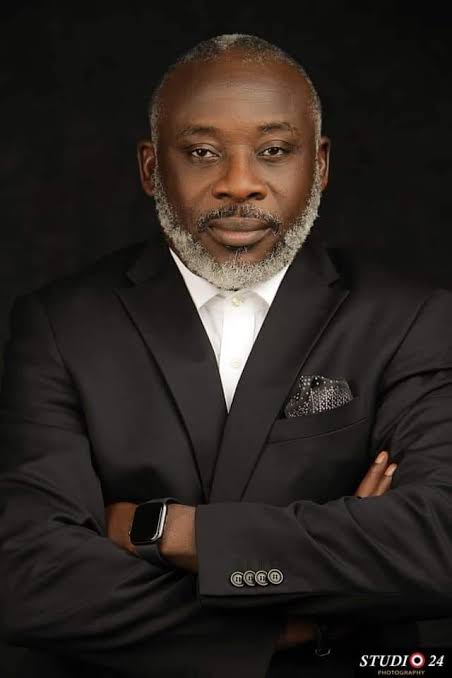
… PDP is going into extinction-Awwal
Ex-House of Representatives member, Hon Teejay Yusuf has insisted that the Peoples Democratic Party, PDP can never go into extinction even with one serving governor.
Recall that Governor of Delta State, Hon Sheriff Oberovwori and his immediate past principal and running mate to PDP’s flag bearer, Senator Ifeanyi Okowa defected to the ruling party, All Progressives Congress APC on Wednesday.
Teejay Yusuf, a vibrant and never say die three-term lawmaker while appearing on Channels tv on Thursday morning did not mince words when he declared that the PDP will bounce back soon.
Countering this position, an APC chieftain, Hassan Awwal said the PDP was going into extinction and by 2027 may not have more than one governor.
Teejay Yusuf also rubbished this position declaring that with even just one governor, the PDP will bounce back into the mainstream.
Giving instances of parties like CPC, ACN, APGA and others that had one governor but never died.
Details shortly….
News
Court orders 54 banks to return N9.3bn stolen by hackers

Justice Deinde Dipeolu of the Federal High Court in Lagos has ordered 54 banks to immediately return a total of N9,329,322,870 fraudulently transferred by hackers from an unnamed old generation bank.
The judgment, delivered on April 15, 2025, follows an ex parte motion filed in suit number FHC/L/CS/629/2025.
The court directed the financial institutions to place a Post No Debit restriction on all accounts that received the stolen funds and to begin the immediate return of all available funds to the originating bank.
The plaintiff bank reported that on March 23, 2025, a breach in its core banking system resulted in unauthorised debits from multiple customer accounts.
The stolen funds—amounting to over N9.3bn—were then dispersed across accounts in 54 financial institutions.
Upon detection of the incident, the bank said it promptly alerted the institutions involved and began tracking the disbursements.
The investigation revealed that the funds were transferred in multiple tranches from the bank into primary accounts and subsequently rerouted to other accounts held by secondary and tertiary beneficiaries.
Justice Dipeolu ruled that the affected banks must provide details of the implicated accounts, including balances and amounts already transferred.
The judge further ordered the immediate return of all recoverable funds to the plaintiff bank.
The financial institutions are also to share comprehensive customer data related to the transactions, including names and destination accounts.
Restrictions are to be maintained on all accounts that received any portion of the funds until full recovery is made, limited to the amount each received.
The judge clarified that the ruling applies strictly to erroneously transferred funds and does not infringe on other customer deposits.
“For the avoidance of doubt and for clarity, the order is only in respect of funds erroneously transferred and sums salvaged,” the ruling emphasised.
Justice Dipeolu concluded that the stolen funds “belong to the plaintiff and not the customers of the respondent banks,” affirming the court’s authority to direct full restitution.
News
US indicts Nigerian for $690k scam, false citizenship claim
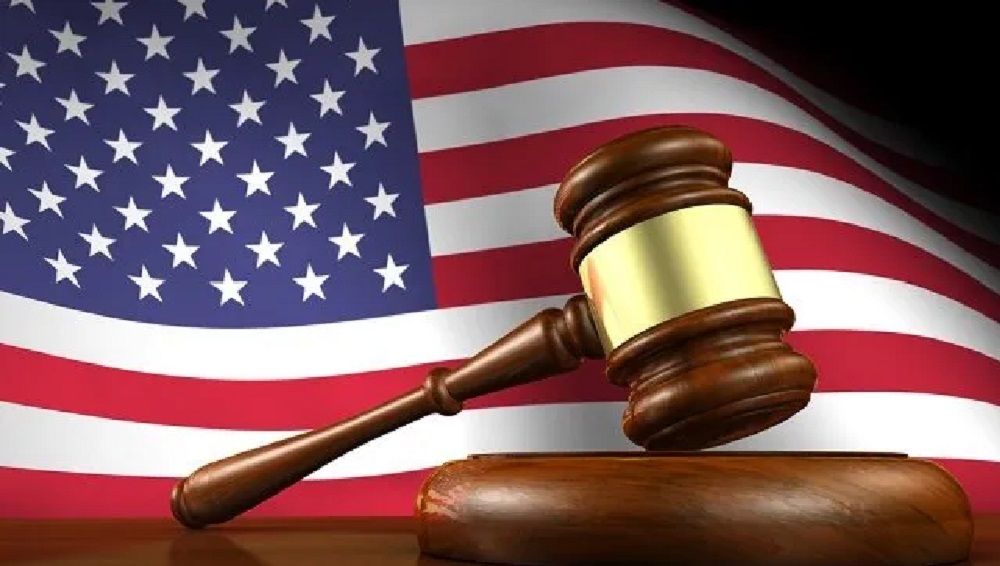
A Nigerian-born United States citizen, Oladapo Fadugba, risks 27 years imprisonment over his alleged involvement in a $690,000 wire fraud scheme and making false declarations to obtain US citizenship.
PUNCH Metro learnt this in a statement by the US Attorney for the District of Florida, Gregory Kehoe, obtained on Wednesday.
According to Kehoe, Fadugba was indicted for multiple charges, including wire fraud, aggravated identity theft, and making false statements during his naturalisation process.
According to Kehoe, between October 2020 and July 2023, the suspect allegedly diverted $690,000 in funds belonging to the US Department of Veterans Affairs, which was meant for reimbursement to a major local healthcare provider.
It was further alleged that Fadugba used another person’s identity to facilitate the transfers into various bank accounts under his control.
The statement read, “According to the indictment, beginning on October 30, 2020, and ending no later than July 11, 2023, Fadugba had more than $690,000 of Department of Veterans Affairs funds, intended for reimbursement to a large local healthcare provider, transferred to his personal bank accounts.
“Fadugba then wrote cheques to himself or to businesses associated with him, which were subsequently transferred to other bank accounts under his control. It is alleged that he used the identification of another individual to carry out these transfers.”
In addition, Fadugba is accused of lying under oath during his US naturalisation proceedings by falsely stating that he had never committed a crime for which he had not been arrested.
Kehoe stated that, if the suspect was convicted on all counts, he risked a maximum sentence of 27 years in the US federal prison and the forfeiture of $400,000, representing proceeds from the alleged crimes.
“The indictment further alleges that Fadugba, a naturalised US citizen from Nigeria, made a false statement under oath during his naturalisation proceedings by claiming he had not committed any offence or crime for which he had not been arrested.
“If convicted on all charges, Fadugba faces up to 27 years in federal prison. The indictment also includes a notice that the United States is seeking a forfeiture order of $400,000, which reflects the approximate proceeds of the criminal conduct charged,” the statement added.
Kehoe concluded by noting that “an indictment is merely a formal accusation of criminal conduct, and every defendant is presumed innocent unless and until proven guilty.”
PUNCH Metro reported on April 12 that a 24-year-old Nigerian man, Mercy Ojedeji, pleaded guilty to charges of wire fraud and unlawful use of fraudulent immigration documents in the United States.
According to a statement released by the U.S. Attorney’s Office for the Eastern District of Missouri, the plea was entered in a US District Court in St. Louis, Missouri.
Ojedeji had admitted to fraudulently securing a student visa and gaining admission into the University of Missouri’s chemistry PhD program in Fall 2023.
He acknowledged using falsified academic transcripts, recommendation letters, a fake resume, and a fabricated English language proficiency report to obtain the visa.
Credit: PUNCH
-
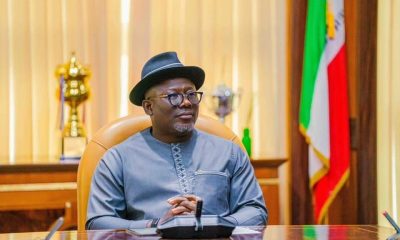
 News23 hours ago
News23 hours agoBREAKING! Gov Oborevwori finally dumps PDP
-

 News20 hours ago
News20 hours agoDelta to transform into complete APC state as 25 PDP Local Government Chairmen set to defect
-
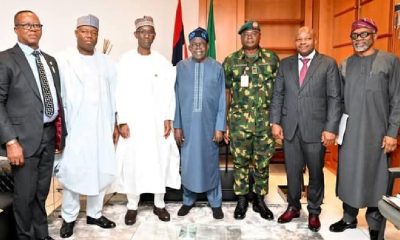
 News9 hours ago
News9 hours agoINSECURITY! Enough is enough, Tinubu tells security chiefs, NSA
-
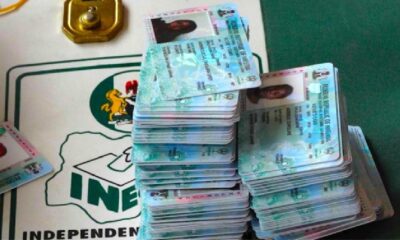
 News8 hours ago
News8 hours agoINEC moves to legalise voting without PVC
-

 News9 hours ago
News9 hours agoJust in: Air Peace suspends all scheduled flights nationwide
-
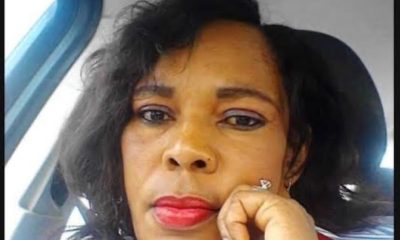
 News20 hours ago
News20 hours agoMoji Danisa to Be Honoured by NUJ FCT for Her Impact in Tabloid Journalism
-
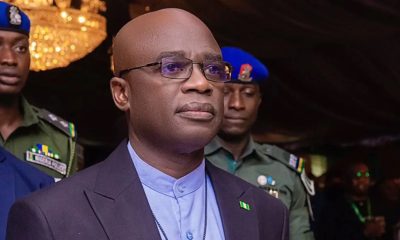
 News23 hours ago
News23 hours agoJust in: “We don’t need Emergency Rule, save us from armed herdsmen”- Gov Alia begs TInubu
-

 News4 hours ago
News4 hours agoJust in: PDP can never die over gale of defection -Hon Teejay Yusuf insists





